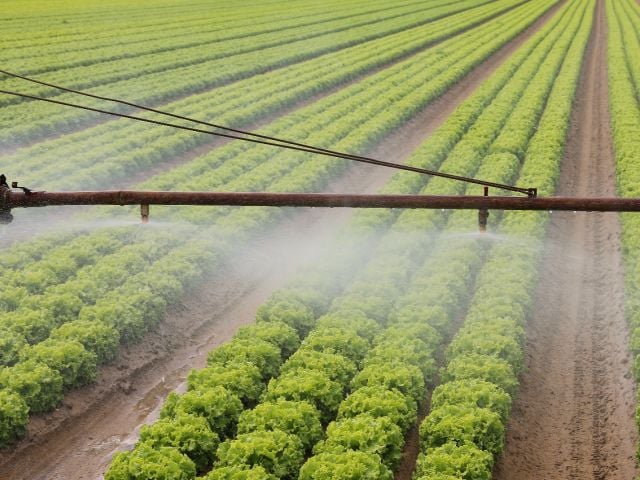WASHINGTON – Scott Faber, senior vice president of government affairs for the Environmental Working Group, issued the following statement today on water and conservation provisions in Congress’ final farm bill.
“Although no farm bill is perfect, the farm bill released today rejects pesticide riders, preserves existing conservation compliance requirements, and helps more farmers transition to organic farming than ever before.
“This farm bill also includes important reforms that will better leverage conservation funding to protect sources of drinking water and reduce harmful toxic algae blooms. In particular, crop insurance and conservation provisions in the final bill will encourage farmers to adopt proven drinking water protection practices like cover crops and streamside buffers.
“Although Congress must do much more to address the serious threats posed by farm pollution, many of the reforms included in this farm bill will provide longer-lasting public health benefits and smarter conservation spending.”
Specifically:
- Thanks to Sens. Debbie Stabenow, D-Mich.; Bob Casey, D-Pa.; Chris Van Hollen, D-Pa.; and Rep. Jim Costa, D-Calif., the final farm bill increases funding for the Regional Conservation Partnership Program and includes provisions for prioritizing drinking water protection projects.
- Thanks to Sen. Sherrod Brown, D-Ohio, the final farm bill allows states to identify the 10 most effective conservation practices for higher cost-share payments through the Environmental Quality Incentives Program, or EQIP.
- Thanks to Sens. Brown; Joni Ernst, R-Iowa; Chuck Grassley, R-Iowa; and Casey, the final farm bill establishes a new Clean Lakes, Estuaries and Rivers, or CLEAR, Initiative that will make drinking water protection and toxic algae blooms a priority for Conservation Reserve Program, or CRP, enrollments, including 30-year contracts.
- Thanks to Rep. Marcia Fudge, D-Ohio, the final farm bill will require that no less than 10 percent of funds for each conservation program be spent on drinking water protection.
- Thanks to Sen. Joe Donnelly, D-Ind., the final farm bill will reform the federal crop insurance program to encourage the adoption of cover crops.
- Thanks to Sen. Tom Carper, D-Del., and Reps. Peter Welch, D-Vt., and Kathy Castor, D-Fla., for fighting for drinking water provisions.
- Thanks to Sen. Casey, the final farm bill includes important reforms to the Conservation Reserve Enhancement Program, or CREP, which funds agreements to establish buffers of trees and grasses along rivers and streams, and requires that 8.6 million acres of CRP land be enrolled through CREP agreements and other continuous enrollment categories.
- Thanks to Sens. Brown, Ernst, Grassley and Casey, the final farm bill reforms the Conservation Stewardship Program, or CSP, to encourage farmers to adopt cover crops and crop rotations.
- Thanks to Sens. Cory Booker, D-N.J., and Mike Lee, R-Utah, the final farm bill will require greater scrutiny of conservation practices and payment rates.
- Thanks to Sen. Patrick Leahy, D-Vt., and Sen. Casey, and Rep. Ann Kuster, D-N.H., the final farm bill includes important reforms to EQIP and CSP that will help more producers transition to organic.
- Thanks to Sen. Stabenow, the final farm bill for the first time makes the growing toxic fluorinated, or PFAS, contamination crisis a priority for USDA’s rural water utility programs.



.jpg?h=827069f2&itok=jxjHWjz5)